Heat pumps are a frequently used energy-saving alternative to AC and heating systems. However, they are susceptible to technical problems where they heat but won't cool. If this happens, fret not! We looked up the answer to this problem for you.
The most common reasons for a heat pump heating but not cooling are the filter, coils, and reversing valve. You can try a few basic troubleshooting steps if your heat pump heats your home effectively but does not cool it.
In this post, we will cover troubleshooting typical reasons for a malfunctioning heat pump. And we will provide information to help you recognize when expert help is required. So, let's check out solutions and investigate what could cause a heat pump to stay in one mode. Read on to learn more!
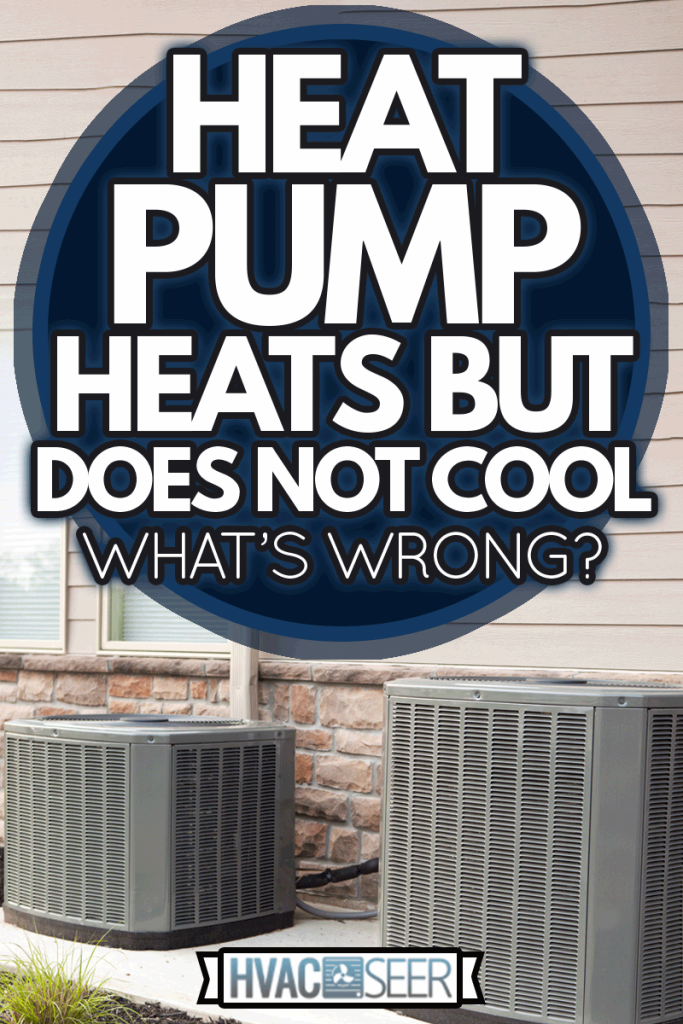
Reasons Your Heat Pump Is Heating But Not Cooling
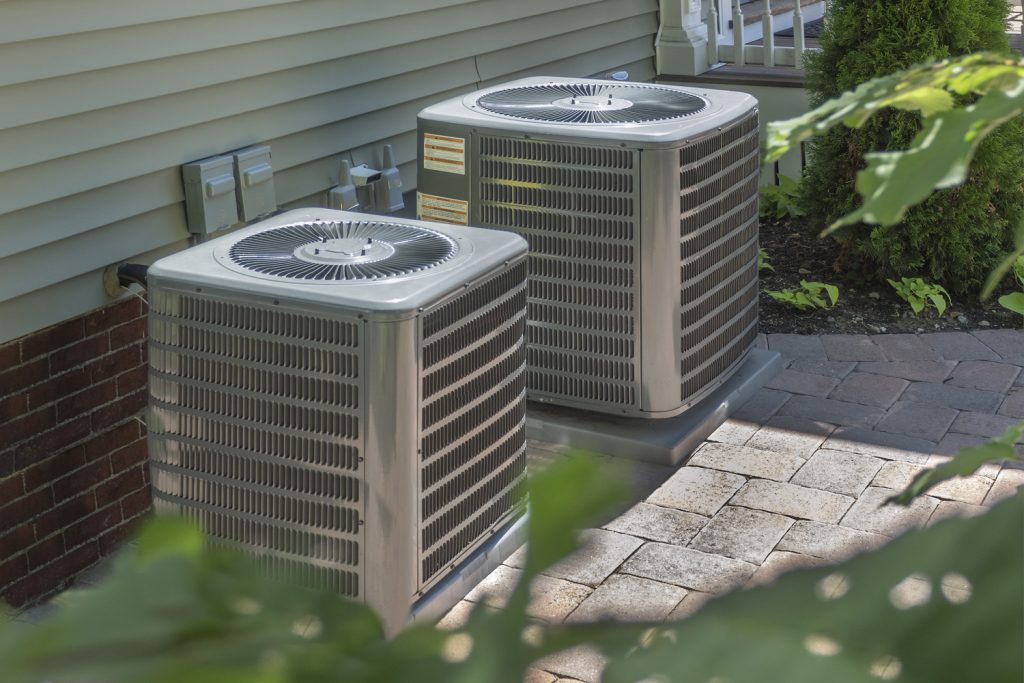
Before you call for a professional to fix your heat pump, first check and see if any of these frequent factors are to blame. Also, you might save money by fixing many of these problems yourself.
Professional heat pump repairs cost around $158 to $613 on average. This is because providers usually charge a small trip fee in addition to hourly rates.
Dirty Air Filter
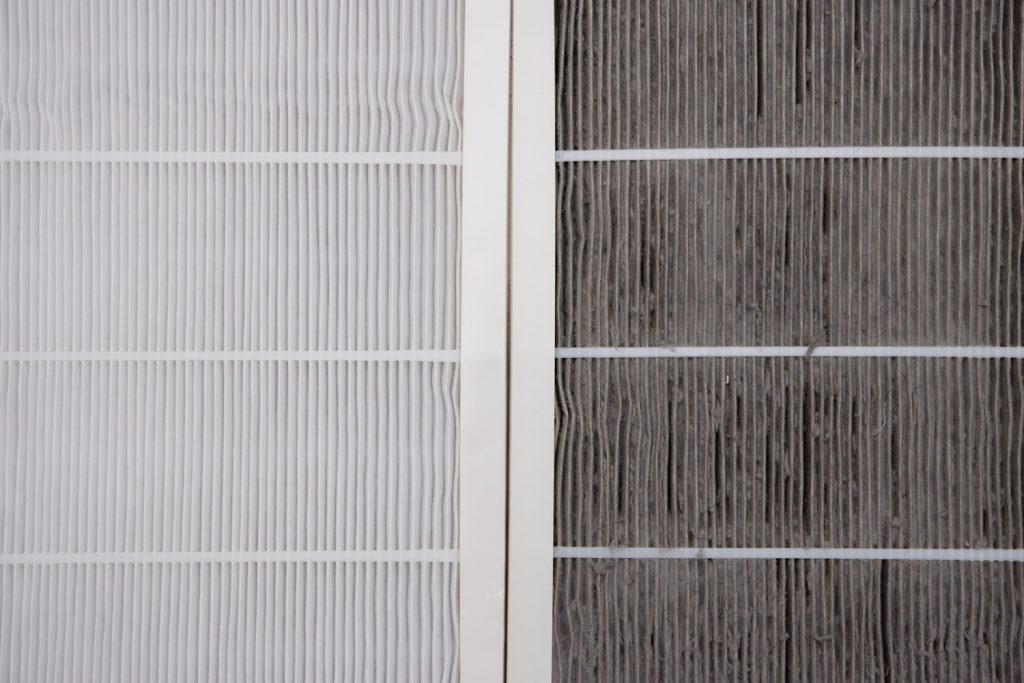
Besides inappropriate cooling, a dirty air filter can create several problems in your heat pump system, including:
- Poor heating and cooling because of obstruction of airflow
- Inadequate air filtering can lead to allergies, asthma, and other respiratory problems in your house
- Overheating can cause system failure when it attempts to function despite dirt and debris impediments
Fortunately, replacing an air filter is one of the most straightforward and most affordable remedies to this issue. Depending on your setup, a singular filter can cost anywhere from $25 to $100.
If you don't have a spare filter or can't get one quickly enough, you can remove part of the debris manually. Make sure you use a soft brush before gently shaking, then tapping the filter until it's clean.
Although this will remove the largest clumps of debris, it is best that the complete filter gets replaced as soon as possible. If your unclean filter is producing health problems in your home, it's better to get rid of it completely.
Your heat pump can run without a filter for up to 48 hours, so plan if you're going to take it out. Taking preventive measures and engaging in regular heat pump maintenance may also be worthwhile.
The cost can vary from $50 to $180, which may not be less expensive than replacing a single filter. But keep in mind, it will be cheaper than replacing more essential components or the entire system.
Dirty Coils
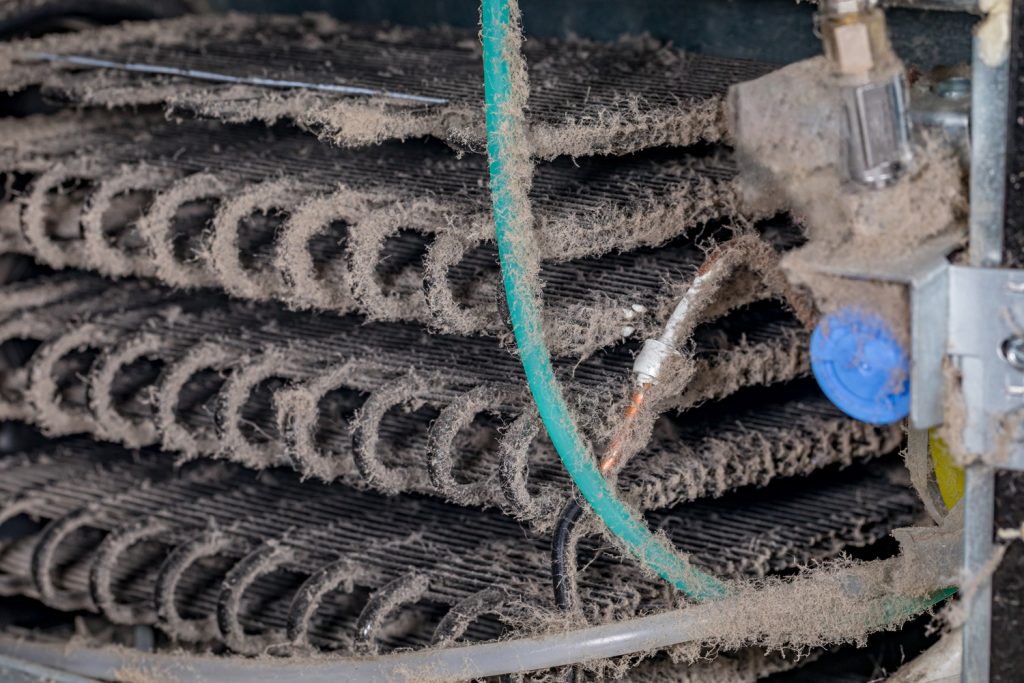
The heat pump's coils are another component that is prone to becoming covered in dirt and debris.
The indoor coil and the outside coil are the two primary coils of a heat pump. You should keep both as clean as possible for the system to perform correctly.
It is quite easy for dirt and other pollutants to adhere to coils because of their shape. Fortunately, this is another problem that you can easily resolve.
Clear any debris from outdoor coils with a light-bristled brush and an ordinary hose. It would be best if you won't use anything abrasive on these coils, such as a pressure washer or a stiff-bristled brush. They can easily damage the coil's exterior and cause other system issues.
You can still clean indoor coils. However, it will be a more difficult task because the coils aren't as easily accessible as they are outdoors. Using a no-rinse evaporator coil cleaner and a soft paintbrush to gently remove stubborn debris.
If this doesn't work or you're having difficulties getting to the coils, an HVAC specialist can help. Again, investing in a maintenance service can help avoid these problems.
Damaged Heat Pump Valves
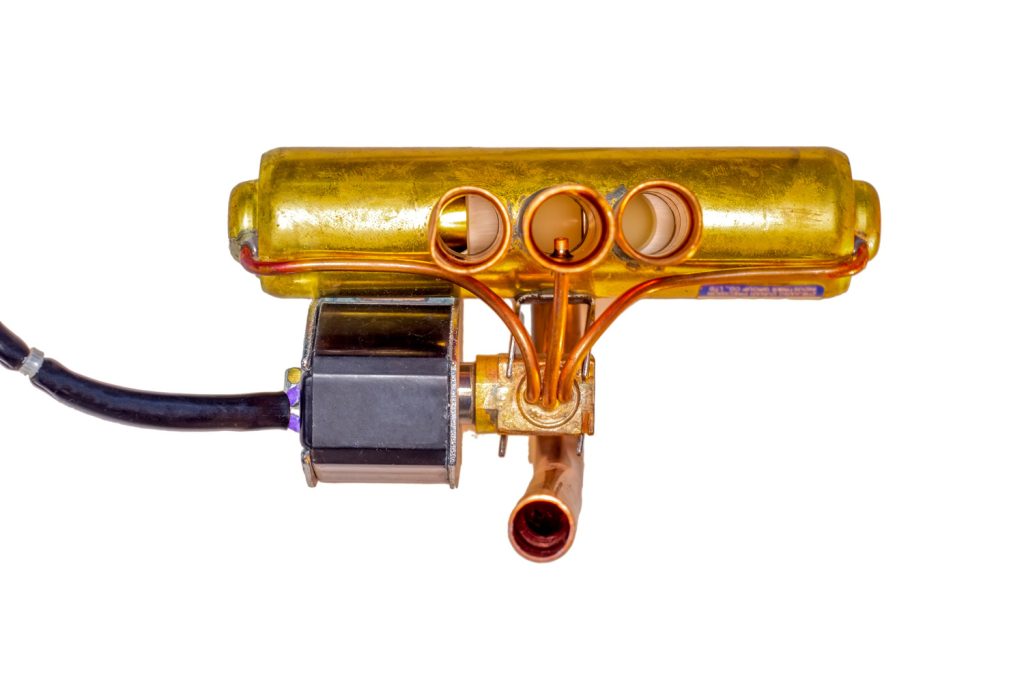
The valves are another commonly broken component in a heat pump. Each system requires many valves to work correctly, including:
- The reversing valve
- Outdoor coil valve
- Indoor coil valve
- The thermal expansion valve
Each valve has a specific purpose in the heating and cooling system, guiding the flow of refrigerant and air.
If a valve in the system fails, it's almost often the reversing valve. Also, if the valve is broken the heat pump may lock the system in one mode. Or, the air or refrigerant may get redirected within the heat pump.
The mode of the system will be determined by the refrigerant flow direction, which is either cooling or heating. If this valve becomes damaged or jammed, the system cannot switch modes.
Because replacing or repairing a valve frequently involves working with refrigerant, you'll need to hire a professional. This service can be costly, especially if the reversing valve is damaged.
Professional heat pump valve repair costs roughly $650 on average, but can range from $250 to $1,000.
Other Causes Why Heat Pumps Are Not Cooling
Anything in your heat pump could end up damaged or broken. But low levels or leakage of refrigerants and the thermostat are also reasons for insufficiently cooled air.
Malfunctioning Thermostat
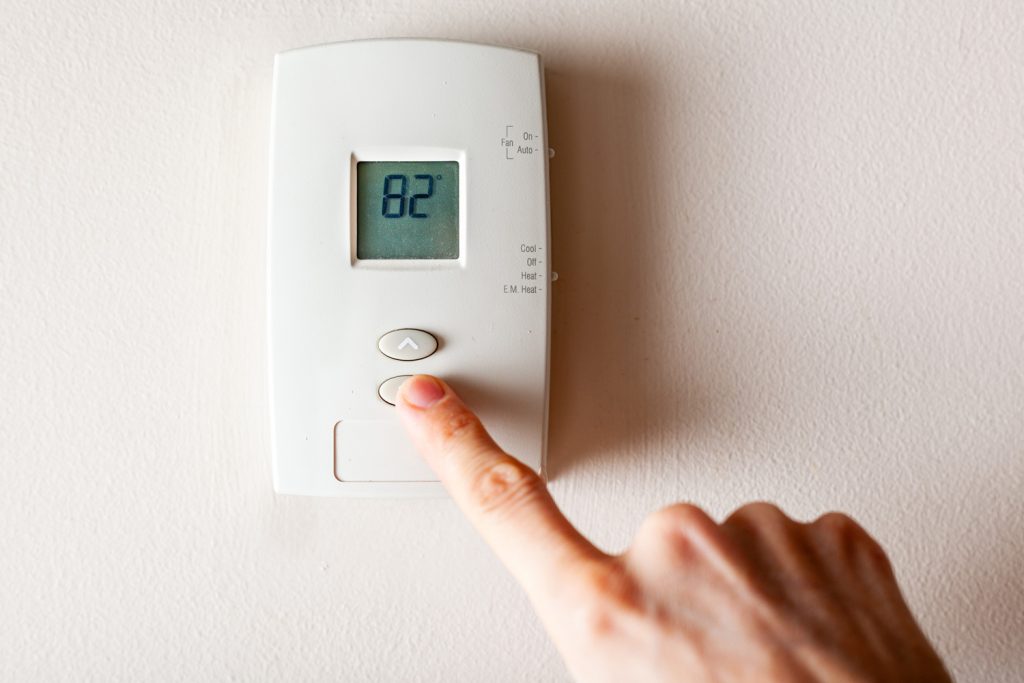
If your thermostat is new, the problem is most likely elsewhere. If you know your heat pump's thermostat is outdated, it's most likely broken or doesn't work as it once did.
Suppose you're using an old thermostat for your heat pump. In that case, it's possible that the system isn't communicating correctly since the thermostat is detecting the wrong temperature. However, a problem with the reversing valve connection is also possible.
However, if your old thermostat isn't the source of the problem or you're unsure, it's probably worth replacing.
Most new thermostats cost under $15. However, the average is closer to $173 because of the growing popularity of smart thermostats.
Overall, this is another easy fix that you can perform independently. You can recalibrate your thermostat if you don't want to replace it for financial reasons or because it not that old.
Low Levels or Leakage of Refrigerant
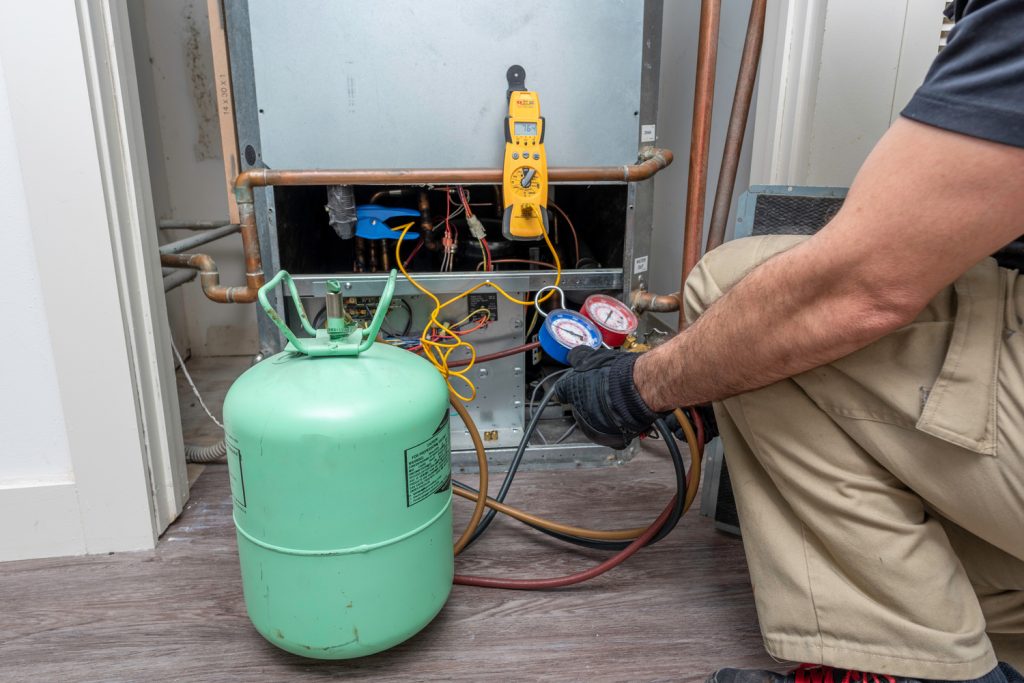
If your heat pump is producing lukewarm air instead of cool air, there is most likely a leak in the system. This causes a loss of too much refrigerant.
Even if your heat pump is set to cool, it won't be able to make and distribute cool air effectively if there isn't enough refrigerant.
Your heat pump has a dedicated refrigerant line that gathers heat from within your home and transports it to the radiator-style exterior coil.
If there isn't enough refrigerant in the system, it won't reach the exterior coil to be disseminated by the heat pump's fan. As a result, lukewarm or cool air instead of the ideal cold airflow through your home, reducing the temperature more efficiently.
It is not recommended to try repairing a refrigerant leak in your system without professional training and licensing.
You cannot know if your system is correctly recharged with refrigerant without specific equipment, even if you manage to repair it yourself. With an HVAC specialist present, the repair process is faster and safer.
Repairing a refrigerant leak can cost $250 to more than $2,000, depending on what caused the leak and where it is located.
Depending on the extent of the damage, replacing the entire or a system component may be more cost-effective than repairing the leak.
Frequently Asked Questions
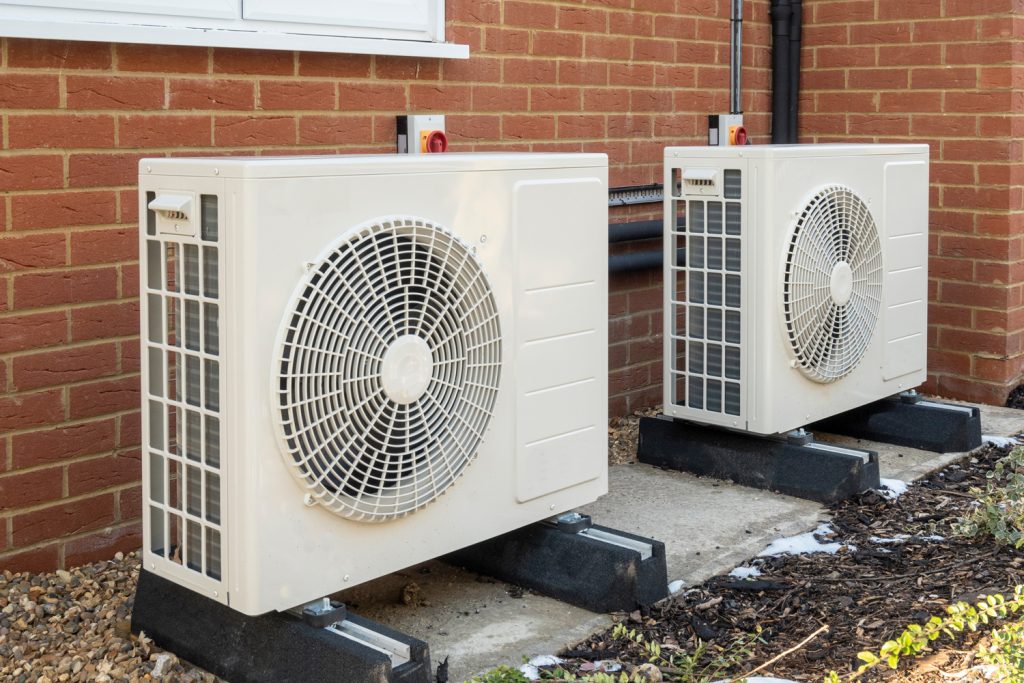
How Often Do You Need To Add Refrigerants To A Heat Pump?
In most cases, the refrigerant level in your ductless system should never need to be refilled. Your system's first charge of refrigerant should last the duration of its life.
Your HVAC system's refrigerant should last for at least 15 years or as long as the unit itself. This is not the case when a leak in the refrigerant line occurs.
If your mini-split develops a leak, an HVAC technician may need to replenish refrigerant when the repairs are finished. If the leak is not repaired, the system will deplete refrigerant and eventually fail.
Should I Turn Off My AC If It Is Not Cooling?
Continuing to use an AC with a refrigerant leak can lead to compressor failure, resulting in premature system replacement.
If your AC isn't chilling and you suspect a refrigerant leak, or if you've checked the air filter and thermostat but still can't get it to work, immediately turn it off and call an HVAC specialist.
Why Is AC Cooling Low?
Dirty air filters and condenser coils make it difficult for an air conditioner to cool a space. The dirt or debris that collects on the filter and coils traps heat and reduces airflow. The unit overheats and underperforms because of the trapped heat.
Takeaway
Heat pumps aren't cheap, but you don't always have to spend more money to fix them if your system isn't producing cold air.
However, if addressing any problems requires interacting with the refrigerant in your heat pump, consult a licensed specialist.
To learn more, check out these articles:
